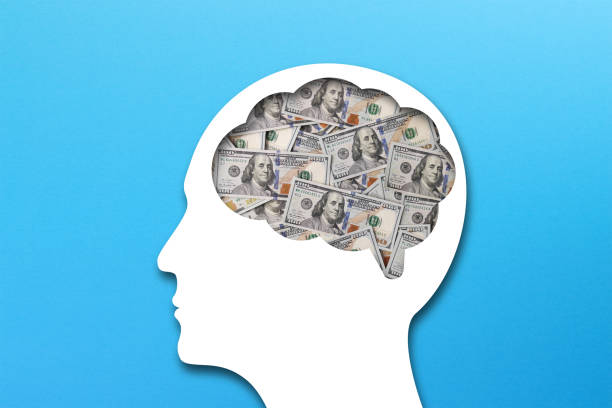It starts with something small.
A stranger holds the door open for you. You get a text from a friend just when you needed it. You step outside and notice the way the light hits the trees—just right.
You pause. You smile. You feel something stir.
Gratitude.
Not the kind you post about on holidays. Not the automatic “thank you” at the store. But the kind that touches something deeper. The kind that reminds you you’re alive—and that life, despite everything, still holds wonder.
This isn’t just sentimentality. It’s not spiritual fluff. It’s science. Gratitude, it turns out, doesn’t just feel good—it rewires your brain, reshapes your perspective, strengthens your relationships, improves your health, and even changes your future.
Gratitude is not a personality trait.
It’s a practice.
And it might just be the most powerful tool for transformation that you’ve never fully learned to use.
The Brain on Gratitude
Let’s begin in your brain.
When you experience gratitude—not just intellectually, but emotionally—it activates several key areas:
- The prefrontal cortex, responsible for decision-making and emotion regulation
- The anterior cingulate cortex, linked to empathy and moral judgment
- The ventral and dorsal striatum, associated with reward and motivation
- And notably, the hypothalamus, which regulates stress
When these areas light up, your brain begins to release a cocktail of neurochemicals: dopamine, the “reward” chemical; serotonin, the mood stabilizer; and oxytocin, the “bonding” hormone.
This isn’t a subtle shift. Studies using fMRI scans show that even writing a gratitude letter (whether or not it’s sent) can result in increased brain activity in areas associated with well-being and decreased activity in the amygdala—the part of the brain responsible for fear and anxiety.
Over time, repeated gratitude literally rewires the brain.
Neural pathways associated with negative thinking weaken, while those tied to joy, empathy, and connection grow stronger. It’s like installing a new lens on your mental camera. The world doesn’t change—but the way you see it does.
The Evolutionary Roots of Thankfulness
Gratitude isn’t just good for us—it’s ancient.
From an evolutionary standpoint, gratitude helped early humans build trust, form alliances, and maintain cooperation in small groups. If someone shared their food with you during a harsh winter, gratitude increased the likelihood that you’d return the favor—or help them when they needed it.
In this way, gratitude became a kind of social glue. A survival strategy.
And while the environment has changed, the biology hasn’t. Gratitude still strengthens relationships, encourages generosity, and promotes prosocial behavior. Studies show that people who feel grateful are more likely to help others, forgive offenses, and act with compassion—even when it costs them something.
In a world often fractured by competition, fear, and cynicism, gratitude is a gentle rebellion. A reminder that we are not alone. That we are wired not just to survive—but to belong.
How Gratitude Transforms Mental Health
You’ve likely heard it before: “Be grateful.” “Count your blessings.” “Look on the bright side.”
But when you’re in pain—grieving, depressed, anxious, betrayed—those words can feel like salt in a wound.
Gratitude isn’t about denying pain. It’s about finding presence inside it.
In one landmark study, participants who kept a daily gratitude journal for just 10 weeks reported:
- 25% greater happiness
- More optimism about the future
- Fewer physical symptoms
- Better sleep
- More willingness to exercise
- Lower levels of depression and anxiety
Another study showed that people who wrote gratitude letters (even if never sent) had significantly better mental health outcomes up to three months later. Their brains literally held onto the positive effects, long after the initial act.
Why?
Because gratitude interrupts the brain’s default mode: negativity bias.
We’re hardwired to notice danger, threats, and problems. It’s what kept our ancestors alive. But in modern life, this bias can create a constant state of dissatisfaction—even in the middle of abundance.
Gratitude is the counter-force. The recalibration. The way back to balance.
Gratitude and the Body: The Physiology of Thanks
Gratitude doesn’t just change how you feel. It changes how your body functions.
Research shows that gratitude is linked to:
- Lower blood pressure
- Reduced inflammation
- Better sleep quality
- Strengthened immune response
- Reduced cortisol (stress hormone) levels
In one study from the University of California, people who practiced gratitude daily had a 23% lower level of cortisol compared to those who did not. That’s a measurable shift in the body’s stress response.
Even heart health improves. People with chronic heart failure who kept a gratitude journal for eight weeks showed improved heart rate variability—a key predictor of resilience and long-term cardiac function.
Gratitude, it turns out, is not just an emotion. It’s a biological regulator.
It softens the nervous system. Eases the fight-or-flight response. Tells the body: “You are safe. You are supported. You are okay.”
The Gratitude Practice Is Not What You Think
Here’s where things get surprising.
Gratitude, when practiced deeply, is not just about writing lists. It’s not just about saying thanks. It’s about training your brain to look for goodness—especially when it’s hardest to find.
It means sitting in discomfort and asking, “What is still true, still beautiful, still worth loving?”
It means honoring your grief while also noticing the kindness of a friend. The taste of warm tea. The way sunlight touches your skin. The fact that breath still moves through you.
This kind of gratitude doesn’t deny reality. It expands it.
It doesn’t ignore pain. It surrounds pain with perspective.
It says: “Yes, this hurts. But no, this is not all there is.”
In doing so, it creates space—for healing, for growth, for grace.
Gratitude in Crisis: What Survivors Teach Us
Perhaps the most profound examples of gratitude come from those who’ve endured the unthinkable.
Holocaust survivors. Refugees. Cancer patients. Parents who have lost children.
In the darkest nights of the human experience, many have found not bitterness—but a kind of radiant, defiant gratitude. Not because everything was good, but because something still was.
Elie Wiesel, survivor of Auschwitz, once wrote:
“No one is as capable of gratitude as one who has emerged from the kingdom of night.”
This is not about toxic positivity. It’s not about pretending tragedy is a gift.
It’s about the resilience that gratitude makes possible. The strength it provides to carry pain without being consumed by it. The way it allows light to return—even if faintly—after the soul’s deepest winter.
Gratitude in crisis becomes not just healing, but rebellion. A refusal to let suffering be the only story.
The Gratitude Gap: Why It’s Hard to Feel Grateful
If gratitude is so powerful, why don’t we feel it more often?
Because modern life is designed to distract us from it.
We live in a culture of scarcity. We are bombarded by messages that tell us we’re not enough. That we don’t have enough. That happiness lies just one purchase, achievement, or milestone away.
Social media fuels comparison. Advertising exploits insecurity. News media thrives on fear. And even in moments of joy, we’re often too busy photographing it to actually feel it.
Gratitude requires presence. Stillness. Attention. And those are rare currencies today.
Gratitude also requires vulnerability. To feel grateful, you must admit that you are dependent on something beyond yourself. That you needed help. That you didn’t do it alone.
In a culture obsessed with independence, this can feel threatening.
But it’s in surrender—not control—that we find our deepest peace.
How Gratitude Changes Relationships
Gratitude doesn’t just change how you feel about your life. It changes how you treat others.
People who practice gratitude report:
- Greater empathy
- Lower aggression
- Higher relationship satisfaction
- Increased trust and generosity
This makes intuitive sense. When you’re focused on what’s good, you’re less likely to dwell on what’s missing. When you feel full, you give more freely.
Gratitude softens defensiveness. It disarms resentment. It allows people to feel seen, valued, and safe.
In couples, expressing gratitude predicts stronger connection and longer-lasting commitment. In families, it builds resilience and warmth. In teams, it fosters collaboration and innovation.
In short, gratitude makes us better to each other.
And in a divided world, that might be the most radical thing we can do.
The Brain Remembers: Long-Term Effects of Gratitude
Here’s something even more hopeful: the effects of gratitude are cumulative.
The more you practice, the easier it becomes. Gratitude becomes your brain’s default mode. Over time, you start noticing good things without trying. You start savoring ordinary moments. You build emotional muscles that protect you when life gets hard.
And perhaps most remarkably—your past starts to shift.
Studies show that people who engage in gratitude practices often reframe their memories. Events that once felt entirely negative are now recalled with more nuance. People remember what they learned. Who showed up. What they gained, not just what they lost.
Gratitude doesn’t rewrite the past. But it reinterprets it.
And in doing so, it changes your story.
Gratitude and the Future: Building a Hopeful Mind
Gratitude isn’t just about the past or the present. It shapes how you imagine the future.
People who feel grateful tend to be more hopeful. More resilient. More optimistic about what’s ahead—even when facing uncertainty.
This isn’t blind optimism. It’s grounded trust.
Gratitude trains the brain to expect goodness. To anticipate beauty. To notice opportunity.
It makes you brave enough to try again. To believe again. To dream again.
And that changes everything.
Building a Gratitude Practice That Lasts
So how do you begin?
Not with pressure. Not with perfection.
Start small. Here are practices rooted in science—and spirit:
- Three Good Things: Each night, write down three things that went well and why.
- Gratitude Letter: Write a letter to someone who impacted your life. Read it to them if you can.
- Savoring Walk: Take a short walk, silently noticing things you appreciate—sounds, colors, sensations.
- Morning Breath: Upon waking, take three breaths. With each one, name something you’re thankful for.
- Gratitude Jar: Drop notes of thanks into a jar each week. Revisit them when you’re low.
The goal is not to force gratitude. It’s to make room for it.
To pay attention. To pause. To receive.
Even now—especially now—there is something worth noticing.
In the End, Gratitude Is a Way of Seeing
Not everything in life is good.
But even in the hardest chapters, there is light.
The hand that held yours. The strength you didn’t know you had. The breath that still moves in and out of your lungs.
Gratitude is not about ignoring suffering. It’s about refusing to let it blind you.
It’s about choosing presence over panic. Meaning over numbness. Beauty over bitterness.
And when you make that choice, again and again—it changes you.
Quietly. Gently. Radically.
You become not just someone who has much.
You become someone who sees much.
And that, perhaps, is the miracle.






